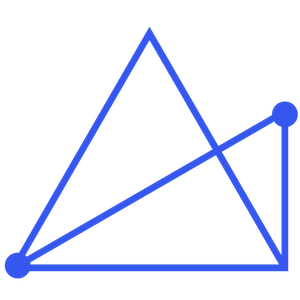This is a hands-on introduction to deep learning using Tensorflow, Google’s open-source framework for machine learning.
The workshop is project-based, leading participants through the process of building a machine learning-based image recognition application from scratch.
Course Description
Participants will master a critical subset of the Tensorflow API: tensor manipulation, the graph, dataset IO, stacking network layers, eager mode, training, and model export. Knowing how to put those pieces together at a practical API level empowers the participant to start solving problems and experimenting with what works.
The workshop will build intuition and understanding, through examples and applications, of the foundational ML concepts necessary for effectiveness: optimization, convolutional neural networks, loss functions, and validation. You will also learn essential tips and tricks to get optimal model performance: hyper-parameter tuning, data augmentation, architecture design, and filter visualization.
There will be ample time for practicing fundamentals, asking questions, and exploring beyond the presented material. We are here to help you interalize this material, make it your own, and have fun while doing it!
Why Tensorflow?
While there are many deep learning frameworks out there, Tensorflow’s combination of performance, ease-of-use, and a rich developer ecosystem makes it an excellent choice for wide range of research and production use cases. Tensorflow has the best integrated deployment story of any framework, can be used with many different platforms and languages, and offers best-in-class utilities for visualization, debugging, and monitoring.
We will show you how to deploy Tensorflow models as a service and use the most important tools in the Tensorflow ecosystem.
Course Outline
Participants will learn to:
- Program with the Tensorflow Python API
- Create and train image recognition models
- Diagnose, evaluate, and visualize models
- Tune a model and tweak your model architecture
- Deploy and integrate your trained models
Who is this program for?
This workshop is for anyone who is interested in building deep learning systems with previous programming experience. Whether you are a software engineer interested in using deep learning at your job, a creator using deep learning on a new project, or an engineering manager interested in defining your team’s AI strategy, you will come away with newfound skills and knowledge to apply to your domain of choice.
You should also have some experience with programming in python and understand basic linear algebra. If you need a refresher on either of these requirements before the workshop, we recommend you take a look at this this tutorial.
Details
Schedule
This workshop will be offered twice, with the same content both times. Both session dates are listed below.
Session 1:
Saturday, May 12, 2018 & Sunday, May 13, 2018
Session 2:
Saturday, June 16, 2018 & Sunday, June 17, 2018
9:00 AM – 5:00 PM on both days. Doors open at 8:45 AM. On Saturday evening there will be a social gathering if you would like to hang out with the instructors and other students in the space after the workshop hours.
Cost
Corporate:
$1,250 per person
Indie:
$800 per person
Cost is full admission to the two-day program. Breakfast and lunch are provided on both days.
If you would like to attend but are unable to because of the cost, we offer a limited number of need-based scholarships. Send an email to hello@kitchentablecoders.com with a few sentences on your background and why you would like to attend this class. Priority will go to underrepresented groups, but we will consider everyone on a case-by-case basis.
If you or your company is interested in sponsoring the event please get in touch hello@kitchentablecoders.com.
Event Location
274 Morgan Ave, 4th floor
Brooklyn, NY 11238
Subway: L Grand Stop
What should I bring?
The primary tool we will be using is Colaboratory, a cloud-based notebook similar to Jupyter which offers free access to a Tesla K80 GPU.
In order to participate in this workshop, all you will need is a Google account for Colaboratory and a laptop with Docker installed.
Instructors
Kovas Boguta
 Kovas Boguta has spent 15 years in scientific computing, data infrastructure, and machine learning roles. At Wolfram Research he helped build Mathematica and Wolfram Alpha, and served as instructor at the Wolfram Science summer school. At Weebly, Kovas built out the Hadoop-based analytics infrastructure. At Twitter, Kovas helped develop the internal deep learning platform, and is now applying ML to recommendations problems. His favorite cellular automaton is Rule 110. Kovas is active on Twitter @kovasb.
Kovas Boguta has spent 15 years in scientific computing, data infrastructure, and machine learning roles. At Wolfram Research he helped build Mathematica and Wolfram Alpha, and served as instructor at the Wolfram Science summer school. At Weebly, Kovas built out the Hadoop-based analytics infrastructure. At Twitter, Kovas helped develop the internal deep learning platform, and is now applying ML to recommendations problems. His favorite cellular automaton is Rule 110. Kovas is active on Twitter @kovasb.
Evan Casey
 Evan Casey is an engineer and researcher interested in generative systems and reinforcement learning. He currently works on autonomous skill learning for robotics at Cogitai. In the past he has worked on real-time ad bidding engines, recommendation systems, and large-scale data infrastructure. He is an alumnus of the Recurse Center and HackNY and is an avid skateboarder and surfer. Evan is active on twitter @ev_ancasey.
Evan Casey is an engineer and researcher interested in generative systems and reinforcement learning. He currently works on autonomous skill learning for robotics at Cogitai. In the past he has worked on real-time ad bidding engines, recommendation systems, and large-scale data infrastructure. He is an alumnus of the Recurse Center and HackNY and is an avid skateboarder and surfer. Evan is active on twitter @ev_ancasey.
